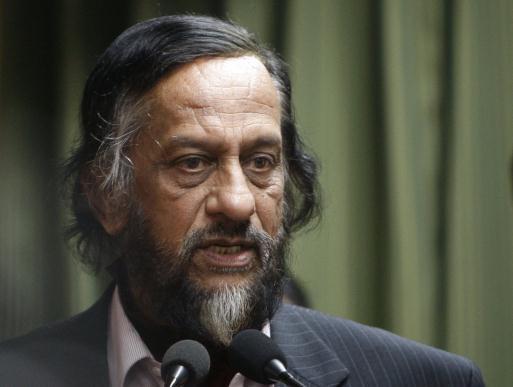A Delhi Trial Court on 13th February 2018 rejected R.K. Pachauri’s plea for a gag order against media reportage covering the allegations made by women that he had sexually harassed them when they worked in TERI. In April 2016, R.K. Pachauri had filed this suit for injunction and defamation seeking damages of Rs. 1 Crore against media houses, against one of the women who spoke out about being sexually harassed by him and against her lawyer Advocate Vrinda Grover.
In the suit for injunction R.K. Pachauri claimed that his reputation was being damaged by media reportage covering women’s accounts of the manner in which he sexually harassed them while they worked in TERI.
In February 2015, a woman employee of TERI filed an F.IR against R.K. Pachauri for sexually harassing her, this was followed by several other women speaking out about how they were similarly sexually harassed by R.K. Pachauri while they worked in TERI at different points of time.
The court said ‘Now that being the position of law, the injunction as sought for falls foul to the said explicit proposition of law. Such restraints as sought for not only amounts to enforcing a gag order upon the media but at the same time prevents a right of the public to be kept updated about the developments – their right to know is infracted or trampled upon.” (Para 43)
“A line of argument was advanced on behalf of plaintiff side that plaintiff was not holding any public office and hence viz a viz him or in relation to his affairs the defendant no.1,2 and 3 also could not contend that they were writing or commenting about a public figure or the same was in the larger public interest. Now to my mind this is only a trifle or inconsequent argument – it is not merely that media can make fair comment only in respect of public persons holding public office. The plaintiff himself had stated that he is a recipient of various awards/well decorated and also claims himself to be a leading luminary in his field having national and international stature. Thus, he has a public persona or is a public figure and has to be under public gaze.” (Para 44)
“ In the case in hand, the nature of allegations/statements were no doubt pricking or the pitch of the same was shrilled/annoying and it could also be said that the statements were challenging/provoking in nature but it cannot be said that they had cross over the threshold to qualify them of being of such a nature which would lead to disturbance of public order or any other like serious clear and present danger was revealed or manifested. Though a protest was also there at the office of the plaintiff on 12.02.2016 however, the same may have been done in the zest of being noticed or to cause annoyance and discomfort to the plaintiff or even to raise awareness about the issue of sexual harassment or even may be to elicit the response of the plaintiff. However, the said statements were not of such a nature which would fall within the category of ‘incitement’. (Para 51)
Read fullroderOrder 39 judgment RK Pachauri
Since day one, Pachauri has been fighting hard to make sure that media coverage of the case be stifled. In fact, as Caravanmagazine reported, “On 16 February, Raghav Ohri, a reporter with the Economic Times, who was preparing to break the story of the complaint, contacted Pachauri for his response to the allegations. Pachauri denied them. He then moved the Delhi High Court for an injunction that barred any individual or media house from publishing any information about the complaint. Ohri’s story made it to the Economic Times’s print edition on 18 February; its web version, however, was taken down in response to the injunction.”
The court, however, lifted the injunction the very next day.

February 14, 2018 at 4:44 pm
The court has given positive directive in refusing to give gag order on the press. The sexual assault allegation should be probed. This is a victory for women media rights